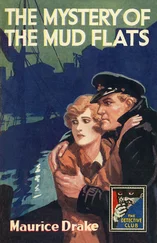William Landay - Mission Flats
Здесь есть возможность читать онлайн «William Landay - Mission Flats» весь текст электронной книги совершенно бесплатно (целиком полную версию без сокращений). В некоторых случаях можно слушать аудио, скачать через торрент в формате fb2 и присутствует краткое содержание. Жанр: Триллер, на английском языке. Описание произведения, (предисловие) а так же отзывы посетителей доступны на портале библиотеки ЛибКат.
- Название:Mission Flats
- Автор:
- Жанр:
- Год:неизвестен
- ISBN:нет данных
- Рейтинг книги:3 / 5. Голосов: 1
-
Избранное:Добавить в избранное
- Отзывы:
-
Ваша оценка:
- 60
- 1
- 2
- 3
- 4
- 5
Mission Flats: краткое содержание, описание и аннотация
Предлагаем к чтению аннотацию, описание, краткое содержание или предисловие (зависит от того, что написал сам автор книги «Mission Flats»). Если вы не нашли необходимую информацию о книге — напишите в комментариях, мы постараемся отыскать её.
Mission Flats — читать онлайн бесплатно полную книгу (весь текст) целиком
Ниже представлен текст книги, разбитый по страницам. Система сохранения места последней прочитанной страницы, позволяет с удобством читать онлайн бесплатно книгу «Mission Flats», без необходимости каждый раз заново искать на чём Вы остановились. Поставьте закладку, и сможете в любой момент перейти на страницу, на которой закончили чтение.
Интервал:
Закладка:
Her face fell. With an exasperated flounce, she twisted away from me.
‘Oh, come on, Mum, it’s a little funny, isn’t it?’
‘Shush!’
‘Come on, I didn’t mean anything.’
‘Shush!’ She stared at the TV. (It was tuned to CNN, the twenty-four-hour newsathon. Some talking head bloviating about some crisis or other. Had he mentioned Kennedy? I don’t know.)
Dad must have heard her shushing me. He stormed in and demanded to know what I’d done. When he got no answer, he knelt beside her and whispered into the swirl of her ear. She made a coy little smile and hunched her ear down against his face, as if his breath was tickling her. They looked like teenagers.
That he was capable of such tenderness was a revelation to me, though I think Mum knew it all along. Once, during one of our daily walks around the circumference of the lake, I asked her what she’d first seen in Claude Truman — his strength? his looks? his aggressiveness? ‘No, Ben, his heart. I saw it right off. That man didn’t fool me for a second.’ I snorted. You might as well say you liked the Venus de Milo for her lovely arms. ‘Don’t talk like that,’ she said. ‘He’d die for you, Ben. You should know that. Your father would absolutely lay down in traffic for you.’
9
Twenty-four hours after John Kelly’s visit, I was sitting in the Bronco trying to tune in WBLM, The Blimp, 102.9 in Portland. The signal was staticky, blocked by the hills around the lake. It came and went. Mick Jagger doing his white-boy rap about rats on the West Side, bedbugs uptown. While my fingers toyed with the dial, my eyes took in the view from the windshield: the shore access road that sloped downhill and disappeared into the water. This was a boat launch where, in summer, the sports put in their Sunfishes and Whalers. But it looked like an entrance ramp to an underwater road, a shortcut along the lake bed that would reemerge on the opposite shore. My attention wandered down this road and out to the water. The surface rippled when the wind kicked up, then, when the wind died, it fell smooth again, like a tablecloth skimmed by the palm of an invisible hand. It was in one of these windless moments that a pale yellow patch appeared. I tried to fix on the spot, but the wind riffled the surface again and the yellow object disappeared. I switched off the radio and stared, chin resting on the steering wheel. But it was no good. The lake surface would not come clear.
I walked down to the edge. The water sploshed against the shore. In the shallows, a fish basked in the sun. He was eighteen inches long, dark, with black leopard spots on his back. He lolled, all fat and lazy, waiting for winter. I could have reached in and grabbed him if I’d wanted to. A few yards beyond the fish, a white rock jutted from the sand like a bone. Then the water went black.
I stood there for some time, trying to see the hidden picture. It was important to be careful here, to get it right. I had to be sure I could see the object clearly before I went any further. The yellow spot appeared occasionally, opaque and formless. A rock maybe? It was some time before the lake decided to open up and show it to me clearly — the back end of a Honda, dull yellow, with a Massachusetts plate, ten or fifteen feet from shore.
Dick Ginoux managed to drift above the submerged car in a little rowboat and hook it with a thick, frayed rope. We hitched the rope to the rear tow ball of the Bronco, but, filled with water, the Honda was heavy as cement. The two vehicles pulled against each other in a tug of war. The Bronco strained. Its wheels spun on the sand and pine needles before it finally gained purchase and the two began to move in tandem away from the lake. The Honda surfaced about eight or ten feet from the bank and rolled backward. Water cascaded from the open windows. At the Bronco’s wheel, I dragged the car all the way out until it sat on the access road, then hurried around to block the wheels before gravity pulled it back into the lake.
The Honda continued to shed water. The surface level in the passenger compartment dropped to the windowsills, then the water sought out leaks in the door seals and in the floor. Rivulets squirted through the bottoms of the doors and from the undercarriage. The draining slowed, however, so that the steering wheel remained half submerged. Black mud and lake grass clotted the exterior.
Dick studied the pool of water still trapped in the car and remarked, ‘Look at that seal. These Japanese cars are something.’
‘Dick, they make these in Ohio,’ I informed him.
‘Still Japanese.’
Dick pulled open the driver’s door, releasing a wave of water over his shoes. He stamped around, angry.
Inside the car, a lawyer’s boxy trial case was wedged in the foot well behind the driver’s seat. I pulled it out and held it sideways so the water could run out of it, then set it down on the back gate of the Bronco. The case was filled with manila folders.
Dick looked over my shoulder. ‘You better pull them out yourself, Chief,’ he told me. With Dick, it was always Chief when he wanted me to do something, Ben when he wanted to do it himself.
I peeled the fattest folder away from the others and extracted it. The beige cardboard was sopped. I laid it on the carpeted back gate, gently, like a relic. On the front cover, a form was printed with blanks for Defendant, DOB, SSN, Address, Charge(s), Bail, Next Date, and Comments. It was rubber-stamped SPECIAL INVESTIGATIONS UNIT. The handwriting on the file was barely legible, since much of the ink had dissolved.
Dick squinted to read the defendant’s name out loud: ‘Gerald McNeese, a.k.a. ‘G,’ a.k.a. G-Money, a.k.a. G-Mac. That’s a lot of names. He ought to pick one and stick with it.’ In a section marked Codefendants, Dick read out more names: ‘Harold Braxton. June Veris.’ He added, ‘You figure that’s a man or a woman, June Veris?’ Next to each name were the handwritten initials MP, circled. In large print at the top of the file someone had written, Trial Date: 10-6.
The papers inside the folder were mostly illegible. These included Boston Police incident-report forms, which were printed on pink paper, and a few yellow legal sheets. In a subfile marked Opening were several soaked yellow pages. Most of the ink on these pages had rinsed off, but you could make out a few faint words: Echo Park, heroin. The signature on court pleadings was legible too; it looked like Danzig. The notes Robert Danziger left on the cardboard file folder had held up better. One read clearly, Call Gittens re. Where is Ray Rat? On the inside cover was a handwritten organizational chart:
A series of arrows pointed from G-Mac to Veris to Braxton. That was apparently the route Danziger intended to follow: straight to the top.
The keys to the Honda were still in the ignition, still attached to a two-inch ring holding ten or fifteen other keys. Driver’s seat pushed as far back as it would go, although Danziger could not have been more than five-ten. Other flotsam in the car: a pair of running shoes, an oversize road atlas, a suitcase.
Dick ran the plate. It came back to Robert M. Danziger of West Roxbury, Massachusetts. He ran the names on Danziger’s folder through the NCIC computer too. The computer reported a substantial record for Harold Braxton, including a conviction for assault with intent to murder (five to seven years at MCI–Cedar Junction) and a dismissal on a charge of first-degree murder. Nothing on the other names. Of course, the NCIC computer was notoriously unreliable; submit the same suspect’s name ten times and you could get ten different results. I would have to call Boston to confirm the criminal records.
My eye was drawn to two stickers on Danziger’s back bumper. One was for a political campaign. Its message was simple enough: ANDREW LOWERY, DISTRICT ATTORNEY. The other featured the crest of the Boston
Читать дальшеИнтервал:
Закладка:
Похожие книги на «Mission Flats»
Представляем Вашему вниманию похожие книги на «Mission Flats» списком для выбора. Мы отобрали схожую по названию и смыслу литературу в надежде предоставить читателям больше вариантов отыскать новые, интересные, ещё непрочитанные произведения.
Обсуждение, отзывы о книге «Mission Flats» и просто собственные мнения читателей. Оставьте ваши комментарии, напишите, что Вы думаете о произведении, его смысле или главных героях. Укажите что конкретно понравилось, а что нет, и почему Вы так считаете.












